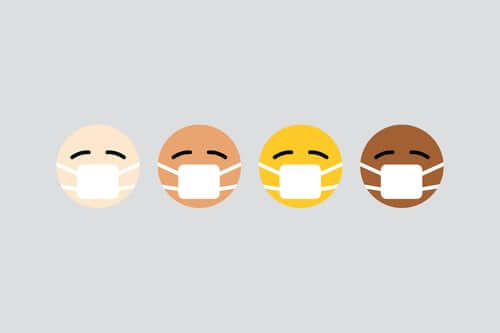The US Center for Disease Control (CDC) and the World Health Organization (WHO) are now recommending cloth face coverings for the general public. The CDC is even offering advice on how to make one at home.
Yet at the beginning of the Covid-19 pandemic, both the CDC and WHO did the opposite, saying the masks were unnecessary.
Why are Masks now Recommended?
According to Dr George Rutherford of UC San Francisco, the early concern was that the supply of surgical masks and N95 respirators (commonly referred to as dust masks) was insufficient. If everybody went out and bought one, medical facilities might run out.
The supply situation has now eased, but the more important change was the evidence that asymptomatic and pre-symptomatic people can also transmit the SARS-CoV-2 virus. This means that the early recommendations on self-isolation only cover half the picture, because so much transmission happens before Covid-19 patients actually fall ill.
The SARS-CoV-2 virus has a 2 to 15 day incubation period, with a median time of 5 days. Even after that time, many Covid-19 carriers never actually get sick.
It’s very difficult to work out how many asymptomatic Covid-19 carriers there are out there, because they often won’t be tested. One report, based on blanket testing of passengers on a cruise ship, found that 81% of people who tested Covid-positive were asymptomatic. These tests were carried out on Day 20 of the cruise, 12 days after the first recorded fever on board.
So generalised wearing of masks is the only way to stop or at least minimise transmission from these asymptomatic people.

Mounting evidence of mask effectiveness
The coronavirus can be transmitted in tiny water droplets not only through coughing or sneezing, but also when talking, particularly when talking loudly. Wearing a mask is an effective way of stopping yourself from transmitting particles to other people when doing so.
But there is mounting evidence of the effectiveness of even simple face coverings for protecting yourself as well. One study using home-made “tea cloth masks” found them 65% effective at filtering micro-particles, vs a 75% success rate for a regular surgical mask. Another study concluded that “all types of masks reduce aerosol exposure” to varying extents.
The findings that all kinds of masks reduce the risk of infection were confirmed in a systematic meta-analysis published in The Lancet in June. So even if you’re not in a region where it’s mandatory, there are plenty of reasons to mask up whenever you head out of the house.